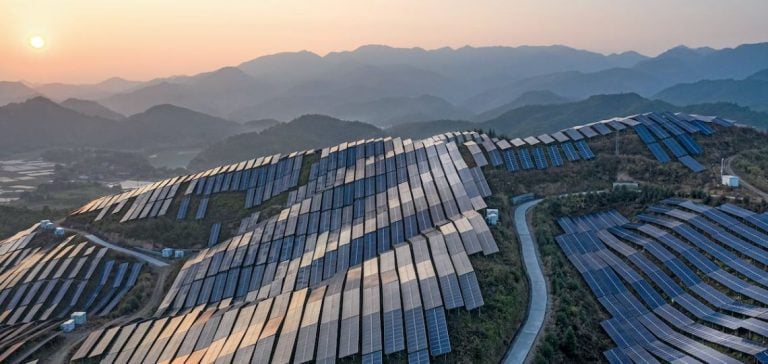China’s energy transition is strengthening, particularly in the wind and solar sectors, according to Yaoyu Zhang, deputy director at PetroChina. At the Asia Gas Markets Conference 2024, organized by S&P Global Commodity Insights, Zhang highlighted the growing contribution of renewable energy in reducing coal dependency for electricity generation in China.
Renewable energies, primarily solar and wind, have enabled a 10 to 13% reduction in coal use for electricity production. This trend counters the common belief that China’s declining coal consumption is mainly due to an increase in natural gas usage.
Rapid growth in wind and solar capacities
In recent years, China has significantly accelerated the development of its renewable energy production capacities. Zhang noted that the production costs of solar and wind energy have become more competitive than those of natural gas. It is expected that China will reach a combined capacity of 1,300 gigawatts (GW) of wind and solar energy by the end of 2024, surpassing the 1,200 GW target set for 2030.
This trend is part of China’s broader strategy to reduce coal’s share in its energy mix while supporting its pledge for carbon neutrality by 2060. According to Zhang, by 2028, about 50% of electricity produced in China will come from renewable sources.
Continued dependence on liquefied natural gas
Despite this rise in renewable energy, China remains heavily reliant on liquefied natural gas (LNG) to meet its growing energy demands. In 2023, China imported approximately 71.32 million tons of LNG, an 11.7% increase compared to the previous year. However, this dependency on LNG presents several challenges.
The main issue relates to price vulnerability. Unlike pipeline-delivered natural gas, LNG exposes China to fluctuations in global market prices. The average cost of imported LNG is higher than that of domestic or pipeline-delivered natural gas. This price volatility impacts Chinese industrial sectors differently based on location. For example, in northern China, where pipelines are available, the high LNG prices, ranging from 13 to 14 dollars per million British thermal units (MMBtu), are considered too expensive for electricity production, whereas they are more acceptable in the south, where the more profitable manufacturing industry is concentrated.
The role of carbon pricing
Another key factor for China’s energy future is carbon pricing. Currently, carbon prices remain relatively low, but an increase could further favor renewable energy in China. In the short term, higher carbon prices could make gas power plants more competitive compared to coal. In the long term, this would boost the competitiveness of renewables, as fossil-fuel electricity producers would face rising costs due to their carbon emissions.
This regulatory framework could play a crucial role in accelerating renewable energy adoption in China, allowing the country to pursue its carbon neutrality goals while reducing its dependence on fossil fuels.






















